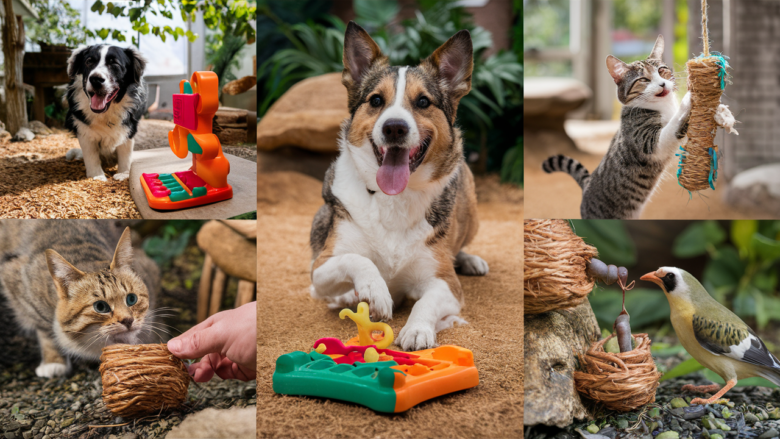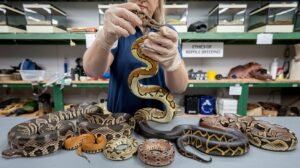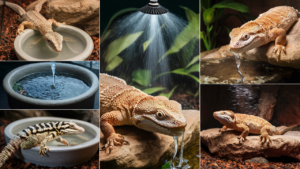Caring for pets involves understanding their unique needs at various life stages. From ensuring a puppy’s healthy growth to socializing kittens, maintaining exotic pet habitats, and creating feeding schedules for small animals, this guide explores strategies that enhance pet well-being and ensure they thrive in a loving environment.
Understanding Puppy Growth Care
Understanding Puppy Growth Care: Effective puppy care is vital for healthy development. Focus on balanced nutrition, keep an eye on temperature regulation, and maintain regular veterinary check-ups. Recognize the signs of fading puppy syndrome, ensuring prompt medical attention if needed. Encourage exercise, social interaction, and appropriate play to foster confidence and adaptability. New puppy owners should establish routines, maintain a safe environment, and begin basic training early to promote a well-adjusted canine companion. Consistent monitoring of health and behavior will ensure they grow into happy, healthy adults.
Kitten Socialization Tips: Socialization is crucial for kittens to become well-adjusted adults. Introduce them to various experiences—sounds, sights, and people—gradually to reduce anxiety. Utilize gentle play to enhance their instincts and communication skills, fostering positive interactions. Encourage exploration of new environments while ensuring safety and comfort. Regularly engaging with kittens will help prevent behavioral issues later. Prioritize positive reinforcement and patience, enabling kittens to adapt to diverse situations and bond with their human companions, setting a solid foundation for their future behavior.
Kitten Socialization Tips
Socialization is crucial for kittens to grow into well-adjusted adults. Start by exposing them to varied environments, sounds, and scents. Gradual introductions to people, including children and other pets, are essential.
Encourage exploration, ensuring each experience is positive. Utilize games to help them learn appropriate behavior through play. Communication through gentle voice tones and soothing actions strengthens their trust in you.
Monitor interactions, guiding them to understand social cues. Early exposure can prevent behavior issues later, fostering confidence. Consistent socialization leads to balanced, well-mannered cats, enriching their lives and yours.
Cleaning Exotic Pet Habitats Effectively
To maintain a clean habitat for exotic pets, it’s crucial to tailor cleaning practices to their specific needs. Regularly remove waste, uneaten food, and organic matter to prevent bacteria build-up.
For reptiles, ensure you use safe, non-toxic cleaning products, and thoroughly rinse habitats. For birds, schedule weekly deep cleanings that include perches and toys, while disinfecting their water containers frequently.
Mammals like ferrets or hedgehogs require consistent bedding changes and surface wipes to maintain hygiene. Establish a routine based on the species’ activity levels and habitat size for efficient cleaning.
While cleaning, gently handle your exotic pets to minimize stress, observing their behavior closely. Signs of agitation, such as hiding or excessive vocalization, indicate the need for a calmer approach.
To prevent illness, always wash hands before and after handling exotic pets, ensuring their environment remains a healthy space. A clean habitat contributes to better health and enhances your pet’s quality of life.
Creating Small Animal Feeding Schedules
Creating small animal feeding schedules is essential for their health and happiness. Design schedules that cater to their specific nutritional needs, emphasizing balance and regularity.
For rabbits, their diet should consist primarily of high-quality hay, supplemented with fresh vegetables and limited pellets to prevent obesity. Ensure fresh water is available daily.
Hamsters thrive on a mix of commercial pellets, small seeds, and occasional treats like fruits or vegetables. Maintain hydration, particularly during hot weather, by offering fresh water regularly.
Guinea pigs require vitamin C-rich foods as they cannot synthesize this vitamin. Include leafy greens and limit pellets to avoid digestive issues. Observe their water intake closely, especially during growth or breeding periods.
Adjust feeding routines as your small pets age, reducing portions to prevent weight gain and adapting to their changing nutritional needs. During breeding seasons, increase nutrient density to support pregnant or nursing females.
Conclusions
In summary, providing holistic care for pets involves understanding their distinct needs from puppy growth to proper feeding schedules. By implementing effective socialization, ensuring clean habitats for exotic pets, and maintaining a structured feeding routine, pet owners can promote health and happiness in their furry companions. Caring for pets is an enriching journey that benefits both animals and their caregivers.



